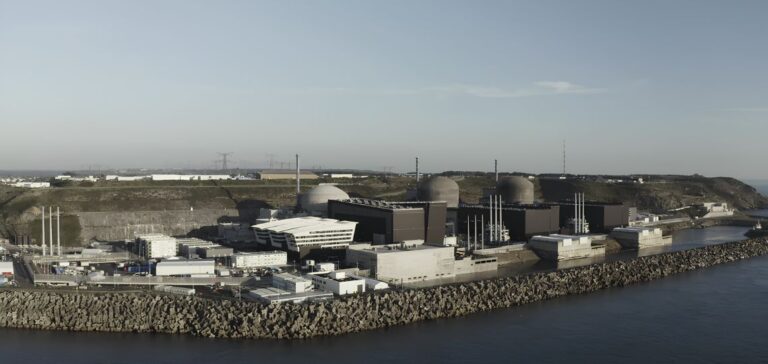On March 17, 2025, the Élysée confirmed that the first of the six EPR2 nuclear reactors (Evolutionary Power Reactor 2) would not be commissioned before 2038, thus postponing the initial target of 2035. This change in schedule follows a meeting of the Nuclear Policy Council, chaired by French President Emmanuel Macron. The program, announced in February 2022, involves the construction of six new nuclear reactors, with the possibility of adding eight more.
The 2038 target for the start of electricity production from these reactors, announced on Monday, came after a government audit in 2022 suggested that the commissioning of the first reactors could be delayed until 2037. This revision of timelines is part of a broader overhaul of the national nuclear policy, aimed at strengthening energy production capacity while addressing safety and financing concerns.
Financing of the EPR2 Program
Discussions during the meeting focused on the financing modalities of the project. The financing of the EPR2 reactors would largely be secured through a subsidized loan from the state, covering at least 50% of the construction costs. This financing model would draw on elements observed in the funding of the Czech Dukovany nuclear plant, approved by the European Union, particularly the use of a zero-interest loan.
A contract for difference, ensuring a maximum price of 100 euros per megawatt-hour (MWh) in 2024 euros, could be put in place to secure the price of electricity production from the future reactors. This model aims to protect investors while stabilizing energy market prices.
Follow-up and Updated Costs
The Élysée clarified that discussions between the state and EDF should be concluded in the coming weeks. A dialogue will also be initiated with the European Commission to obtain a final investment decision from EDF by 2026. This step is critical before officially launching the construction of the reactors.
The program’s costs have been revised upwards. Initially estimated at €51.7 billion in 2022, the total cost of the six EPR2 reactors is now estimated at €67.4 billion for 2023, according to the Court of Auditors. Taking inflation into account, a total budget of nearly €80 billion is now being considered. Government officials have stated that a final financial framework will be determined soon.






















